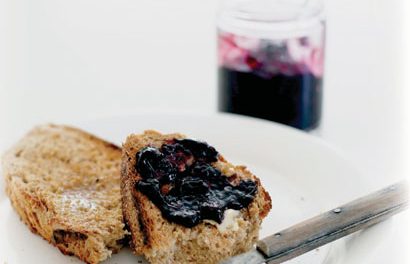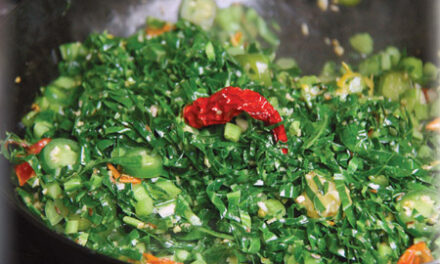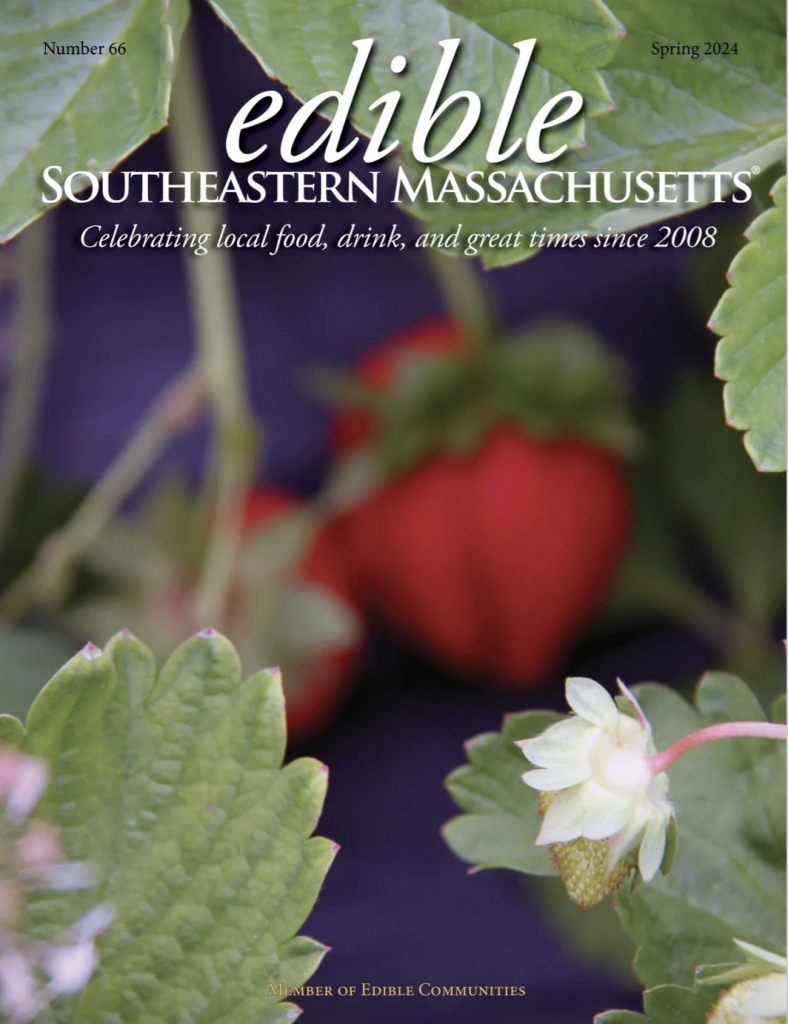
Words, photos, and recipe card courtesy of Maxx Fidalgo.
In late fall of 2022 my grandmother died, eight years after a severe stroke. The matriarch of our Azorean-Portuguese family, her estate was settled in a matter of days. She didn’t have much. Her presence was larger than life and those left in the aftermath marveled that her life could be so quickly organized and contained.
Soon after, my mother slunk in one day lugging a vinyl-plastic bag of tattered notebooks, bent binders, and looseleaf papers. Looking triumphant, she unzipped the top and pulled out a fragile-looking journal, the cover holographic red.
“I stole your grandmother’s recipe books,” she said proudly, the first smile I’d seen on her face in days. She cared for my grandmother, cooking for her almost every day and utilizing recipes my grandmother had stashed across multiple books. Some were so old, they had come with my family when they left Portugal.
Cultural Crossings
My grandmother decided to emigrate with her family of 10 from São Miguel, Açores, in 1975 when the communist regime of António de Oliveira Salazar was finally over. They weren’t wealthy; she was a seamstress and my grandfather the village butcher. Together they cared for their eight children and her mother. With limited space for what they could afford to take, my grandmother had to prioritize and decide which things were worthy to take across the Atlantic.
My grandmother made sure everyone had clothes, and she tucked away family pictures. But she couldn’t take the mineral spring waters by their farmhouse with which she cooked. She couldn’t take the hot, sweet earth that cooked their food to perfection when buried underground. There weren’t funds for a video recorder, so she couldn’t capture footage of the feasts in their village. There wasn’t room for the thick books she loved, the vinyl records of Portuguese fado sung to the melody of a 12-string guitarre, or their delicate azulejo-painted china.
You’re on a plane to a new world and you will never see your old one again—what do you choose to take to remind you of home?
The Common Denominator
Sundays after Mass, her eight children, their spouses, and her grandchildren would gather at her home. She made chouriço and beans to go with the papo secos rolls my mother would pick up from our local Portuguese bakery. For Easter, she would make her grandchildren their own Portuguese sweetbread massa with a hard-boiled egg cradled in the center. On Thanksgiving, it was caldo verde—puréed kale soup—and liver stuffing. Christmas brought with it huge loaves of rum-laced massa; porcelain troughs of arroz doce with thick, creamy rice covered in cinnamon; and sweet, simple biscoito cookies by the dozens, my cousins and I biting into the rings to make half-moons.
Each recipe had a story, sometimes of how my grandmother rushed to remember the recipe measurements before she forgot them and they might be lost forever. Some were traditional children’s stories of naughty rat João Ratão falling into a vat of soup for not staying out of the kitchen—a lesson for the grandkids when she babysat and we were underfoot. Others were of family, before they left home, how they would bake bread in wood-burning stoves, make sweets for religious festivals, or collect ingredients from small gardens in the backyard.

The culture lives on: Maxx and Vo.
Learning from Our Elders
My grandmother never spoke to me in English, but I understood every word she said because I was exposed to the language in her stories and cooking. She told me about goats and chickens and love-struck ladybugs while we ate or watched and, when old enough, helped her cook. I learned of Portuguese holidays, the fruit my great-grandfather loved, and how to pronounce most of the items in my kitchen.
Food itself was a learning tool: pork in America was never as fresh as my grandfather bringing in their portions from the day’s slaughter; and bread was never the same from the Portuguese bakeries as it was when my grandmother made hers from the sourdough ferment that the village women shared with each other; parsley could be added to dishes to give them a boost of flavor; and adding powdered ginger to any dish helps digestion.
Bits of my culture that I would never experience in the way my grandmother did were gifted to me in slices of bread and spoonfuls of leftover caramel cake batter. But my mother snagged and kept every recipe that my grandmother wrote out, on both sides of the Atlantic, a physical legacy of her Portuguese culture.
Part of the treasure of having my grandmother’s recipes is the immediacy of her life in every pen-stroke, milk stain on a page, bit of dough dried to a notebook cover, and smeared word. Looking at her urn during the funeral, I whispered to my older sister in melancholic wonder, “How can a life so big fit in something so small?” I think that when emigrating, my grandmother had the same question, and she found the answer in her words about food.
My mother’s favorite recipe from my grandmother is the traditional sweet-rice—arroz doce. My mother practiced it every holiday where it was appropriate (you don’t make arroz doce unless there is a celebration, as it is a celebratory dessert). Now, my mom tries to make it from memory, making adjustments, remembering the hints her mother gave her about when was the correct time to add ingredients.

After a while, my mother’s complaints that “it’s just not the same” faded away. This is the only version we remember, one my grandmother enjoyed later in life when she could no longer make it herself. That’s okay. This is my grandmother’s recipe. My mother says it to me, even when she adjusts it with non-dairy ingredients; she says it to my cousin’s little children when they eat it; and she’ll say it to my sister’s children when they come into the world. I say it to friends, to family, to the world—through it and the stories of holidays and celebrations, our culture lives on. And so does my grandmother.
Maxx Fidalgo learned from his grandmother to be fiercely protective of his legacy. He wrote this piece to share the lessons of generational cooking and to encourage others to keep their family gastronomic traditions alive.







